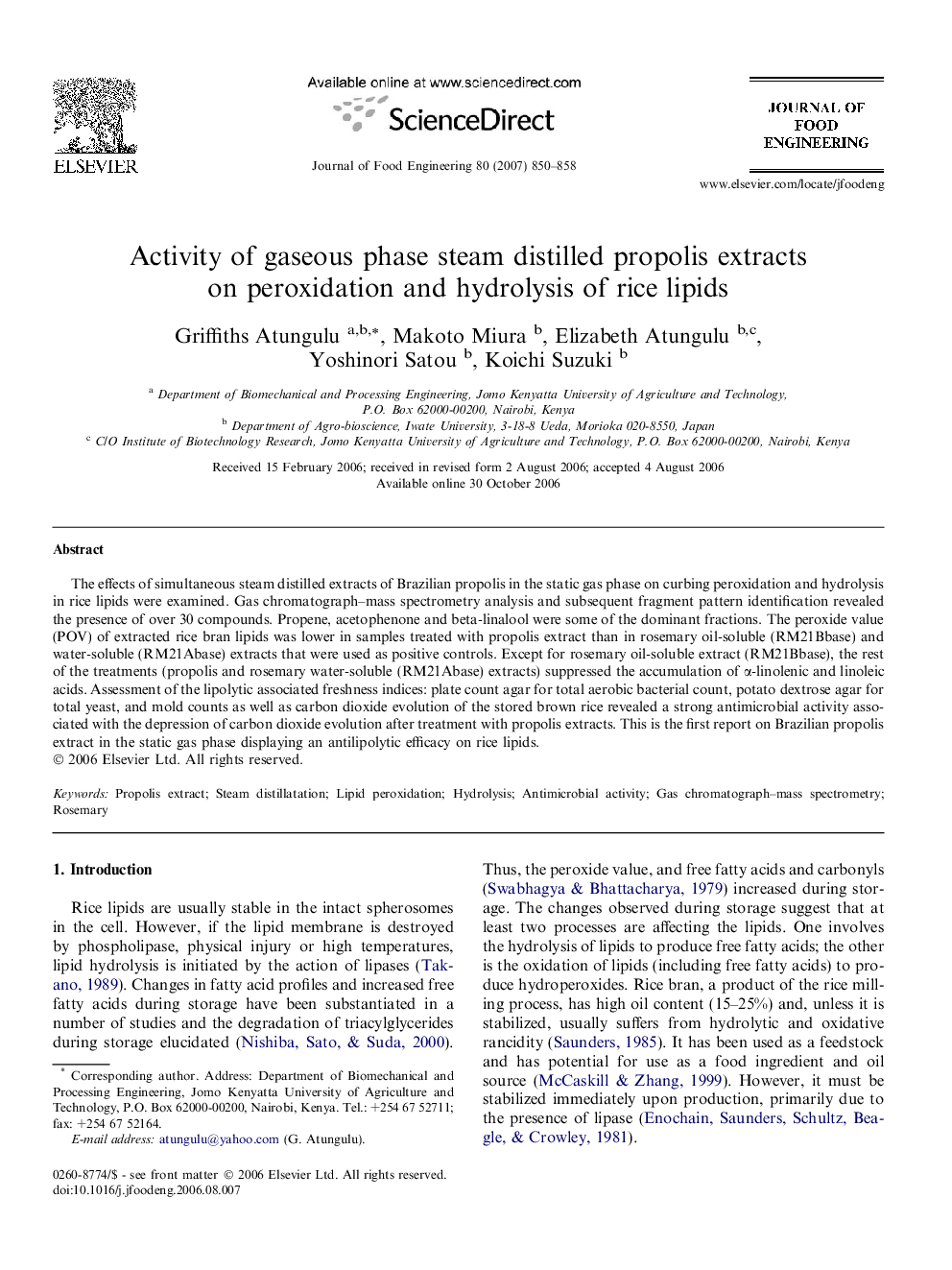| Article ID | Journal | Published Year | Pages | File Type |
|---|---|---|---|---|
| 224957 | Journal of Food Engineering | 2007 | 9 Pages |
The effects of simultaneous steam distilled extracts of Brazilian propolis in the static gas phase on curbing peroxidation and hydrolysis in rice lipids were examined. Gas chromatograph–mass spectrometry analysis and subsequent fragment pattern identification revealed the presence of over 30 compounds. Propene, acetophenone and beta-linalool were some of the dominant fractions. The peroxide value (POV) of extracted rice bran lipids was lower in samples treated with propolis extract than in rosemary oil-soluble (RM21Bbase) and water-soluble (RM21Abase) extracts that were used as positive controls. Except for rosemary oil-soluble extract (RM21Bbase), the rest of the treatments (propolis and rosemary water-soluble (RM21Abase) extracts) suppressed the accumulation of α-linolenic and linoleic acids. Assessment of the lipolytic associated freshness indices: plate count agar for total aerobic bacterial count, potato dextrose agar for total yeast, and mold counts as well as carbon dioxide evolution of the stored brown rice revealed a strong antimicrobial activity associated with the depression of carbon dioxide evolution after treatment with propolis extracts. This is the first report on Brazilian propolis extract in the static gas phase displaying an antilipolytic efficacy on rice lipids.
